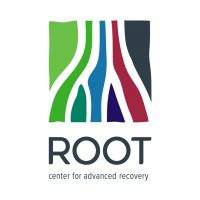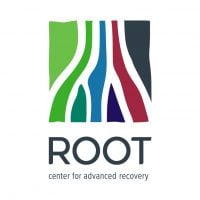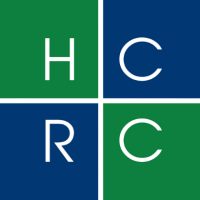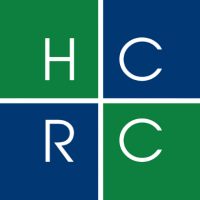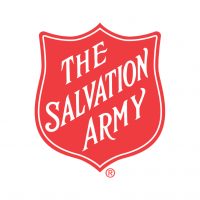
Salvation Army - Adult Rehab Center - Substance Abuse Treatment
Drug Rehab Center in Hartford, Connecticut
- Substance Abuse
- Opioid Addiction
- Drug Addiction
- Alcoholism
About Salvation Army - Adult Rehab Center - Substance Abuse Treatment in Connecticut
Salvation Army - Adult Rehab Center - Substance Abuse Treatment is an Addiction Treatment Facility in Hartford, Connecticut offering treatment for Alcohol Abuse, Opioid Addiction, Substance Abuse. This facility provides Drug Rehab, Inpatient, Outpatient, Residential, Sober-Living / Half-Way levels of care, specifically structured for each individual.
Many clinical therapies are available, including (but not limited to): Drug Rehab, Family Therapy, Group Therapy, Inpatient Treatment, Outpatient Treatment (OP), Residential Long Term (>30 Days), Sober-Living / Half-Way. We explain what all of these are below. Both men and women are welcomed for treatment here.
Our independent and aggregate research did not product any payment method or insurance acceptance information for this center. Our admissions experts are available 24/7 to assist you with finding a treatment center that accepts you or your loved one's insurance.
Genders
Ages
Modality
Additional
Conditions and Issues Treated
A combination of treatments is often needed to treat drug abuse. Some addictions can be treated with counseling and support groups. In other cases, drug abuse can lead to a medical problem and require medical treatment. Treatment for drug addiction typically combines counseling and psychotherapy with medication and behavioral therapies.
A combination of treatments is often needed to treat drug abuse issues effectively. In the case of drug abuse, there is no easy answer or one-size-fits-all cure.
Opioid addiction has become a significant health problem in the United States. In 2015, there were 91 opioid overdose-related deaths per day, with a substantial increase in mortality rate in 2014.
When opioid addiction has reached a point where a person’s life becomes unmanageable, treatment options are available to help them get sober. Treatment that includes medical care with medications and counseling can help a user transition into sobriety.
Levels of Care Offered
This center offers a variety of custom treatment tailored to individual recovery. Currently available are Drug Rehab, Inpatient, Outpatient, Residential, Sober-Living / Half-Way, with additional therapies available as listed below.
Inpatient treatment for alcoholism or drug addiction is an option that provides the addict with a supportive environment in which they can stop using. After detox, an inpatient treatment center provides a structured environment for the addict to recover from their addiction and begin taking steps toward a lifetime of sobriety.
This type of treatment is appropriate for addicts that are most in need of intensive care and supervision. This includes those who were unable to quit on their own, those who need more structure than they can get in outpatient treatment, and those whose addiction has led them into legal trouble or severe health problems.
Outpatient treatment is often used for drug addicts in drug rehab. Outpatient treatment consists of counseling and therapy sessions. This form of treatment is also called ‘day-treatment’. The outpatient treatment process begins with the addict’s initial detox period, lasting about ten days.
Outpatient treatment is used for those who are at moderate risk for ‘slipping back’ into the addiction, for those who:
- Are not currently experiencing any side effects from withdrawal and can handle social pressure
- Can handle stressors that might trigger relapse
- Have a stable living environment or have moved out of their previous environment, which was not conducive to being sober
- Have a support system that allows them to go to a facility a few times a week while still keeping their current responsibilities
- Have no legal obligations, being either on parole or probation, that require them to seek treatment at a mandatory facility
- Are not currently experiencing any side effects from withdrawal and can handle social pressure
- Have a stable living environment or have moved out of their previous environment, which was not conducive to being sober
Sober living homes, also known as halfway houses, provide recovering people with a structured drug-free environment to live in that bridges inpatient rehab and the much less structured world of outpatient rehab. Sober living homes offer a person early in recovery the opportunity to practice recovery skills in a safe environment.
The atmosphere in sober living homes is less restrictive than in an inpatient facility. Members have to follow many rules, including not drinking and using drugs and paying rent and bills. There is no limit to the period of stay. As long as you stay, you should follow the rules because it’s the opportunity for individual and group sobriety.
Residential treatment programs are those that offer housing and meals in addition to substance abuse treatment. Rehab facilities that offer residential treatment allow patients to focus solely on recovery, in an environment totally separate from their lives. Some rehab centers specialize in short-term residential treatment (a few days to a week or two), while others solely provide treatment on a long-term basis (several weeks to months). Some offer both, and tailor treatment to the patient’s individual requirements.
Therapies & Programs
Family therapy is beneficial for people who are in addiction treatment services because it offers addicts the opportunity to work with their family members to better understand what led them to make choices that contributed to their addiction.
This type of therapy helps family members reach a deeper understanding of how they can best support their loved one during recovery. It also helps the addict better understand their own motivations and triggers that led them to turn to substance abuse.
Family therapy can help addicts in the following ways:
- Assists family members in processing difficult feelings so they don’t blame or resent recovering addicts
- Assists family members in understanding how addiction has impacted the addict and everyone who is involved with them
- Allows the addict to take responsibility for their actions, while encouraging improved communication skills
- Helps family members understand how to best support an individual in recovery so addicts don’t relapse again.
Group therapy can help build a stronger support system and give addicts in Hartford, CT insight into their addiction that they gain through shared conversations. Group therapy occurs in a controlled group environment, exclusive of one on one meetings. This makes it safer for patients to feel comfortable sharing the struggles they’re going through and gaining perspective.
Additional Details
Specifics, location, and helpful extra information.
Hartford, Connecticut 6132 Phone Number(860) 527-8106 Meta DetailsUpdated November 25, 2023
Staff Verified
Salvation Army - Adult Rehab Center - Substance Abuse Treatment Patient Reviews
There are no reviews yet. Be the first one to write one.
Hartford, Connecticut Addiction Information
Connecticut has a higher rate of substance abuse and addiction than the national average. The state ranks in the top 10 in the country for illicit drug dependence among those ages 18 to 25. In 2010, there were 9,211 people admitted to an alcohol treatment facility for alcohol abuse combined with a secondary drug. Connecticut ranked fifth in the United States of America for the number of fatalities involving drunk driving in 2014.
Heroin and cocaine are the most commonly abused drugs in Hartford, CT. About 46% of people who have been arrested admit to using illegal drugs. Connecticut was ranked seventh out of the ten worst drug-plagued states in a comparative study. 723 people died of opiate and other illicit drug overdoses in the state. There are various drug treatment options available in Hartford, CT for someone looking to get sober.
Treatment in Nearby Cities
- Durham, CT (20.7 mi.)
- Avon, CT (7.0 mi.)
- Branford, CT (35.1 mi.)
- New Milford, CT (39.2 mi.)
- Norwich, CT (36.8 mi.)
Centers near Salvation Army - Adult Rehab Center - Substance Abuse Treatment

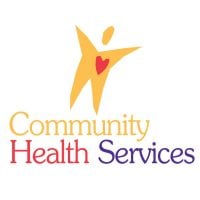

The facility name, logo and brand are the property and registered trademarks of Salvation Army - Adult Rehab Center - Substance Abuse Treatment, and are being used for identification and informational purposes only. Use of these names, logos and brands shall not imply endorsement. RehabNow.org is not affiliated with or sponsored by Salvation Army - Adult Rehab Center - Substance Abuse Treatment.



